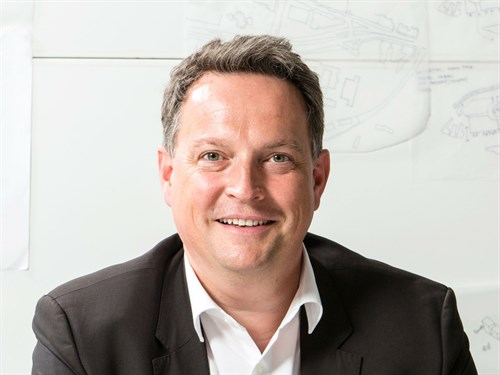They
say a week is a long time in politics; but with the rate at which
workspace design changes, a year is a very long time in
architecture. Over the last 15 years, since the inception of
Glasgow's IFSD, businesses' requirements for space has changed
exponentially, and as architects, we've evolved to make sure we're
always exceeding the brief.
Where
once the focus was on matching London standards - whilst retaining
local cost efficiencies - our clients' focus has shifted
dramatically to the protection of their workforce's physical and
mental wellbeing. Standards and cost are still vitally important;
but these are now a 'given' and are not enough in
themselves.

Businesses now understand that by putting their workforce at
the heart of a building, productivity soars as they retain top
staff and generate positivity. So where once it was enough to offer
bright, spacious floorplates, we are now briefed to incorporate
showers, gyms, and in the case of HFD Group's '177 Bothwell
Street', which we designed, a 150m running track on the
roof.
Over
the past 15 years, sustainability has also leapt to the top of the
design agenda. Clients, architects and occupiers all now understand
the implications of workspaces being as green as possible, not only
this, they must futureproof their schemes. It's very likely that
the next 15 years will see a sharp increase in briefs to protect
against climate change, something that wouldn't have been
considered a decade ago.
Similarly, 15 years ago, 'co-working' conjured up images of
artists collaborating in loft warehouses; now with organisations
such as the BBC and Deloitte, it's a completely normalised way of
working, and has filtered up from exposed brick incubator spaces to
high-end City Centre business clubs. With an ever-growing workforce
who can plug in anywhere, it's difficult to see this trend
changing.
The
rise of co-working has fundamentally changed how we occupy offices;
however, it's not just floorplates that have become more agile.
Reception spaces have also felt the impact of the 'co-' prefix,
with arrival spaces being reinvented as extensions of the
collaborative spaces within.
Traditionally, receptions were single use spaces, occupied by
waiting visitors. This idea of 'fixed' space is increasingly being
interrogated, with occupiers rethinking how ground floor spaces can
interact with the surrounding community. The arrival space is now
considered an extension of the office - a place for meeting,
collaboration and an opportunity to articulate brand values.
Looking to hospitality for ideas, receptions now create a bustling
and informal welcome to guests, whilst also welcoming the public
in. This positions receptions as 'shop windows', with areas for
events, galleries and public amenities - communicating an
organisation's values and setting the tone of the
building.
Also
changing is the line between 'back of house' and 'front of house'
-which is dissolving. Instead of meeting in a boardroom, people
favour the more relaxed setting of a café or co-working space,
within a reception area. This approach 'opens the front door' of an
organisation, showing clients the culture of the organisation and
driving a shift to informality. This has been proven to forge
closer bonds with clients.
Flexibility and openness will not suit every occupier, and -
in my view - must always be adopted thoughtfully enough to ensure
use. it is imperative to find a balance between public and private
that is appropriate for individual organisations.
Glasgow itself has changed in the last decade and a half, and
the IFSD has evolved with it, from a specific geographic location
to a collaborative, supportive network of professional financial
organisations. As these firms have adapted their practices, so have
their workspace requirements changed and as architects, we continue
to work hard to understand their needs. With the rise of the
fintech sector it is likely that the next decade will again see
unparalleled change; and with Glasgow continuing to attract the
cream of the crop, we will continue to create offices that will
bring them to, and keep them in, Glasgow.
Keep up to date with all the business and community
news from Glasgow's IFSD by subscribing to our monthly
e-newsletter or connecting on LinkedIn
and twitter .
#IFSD